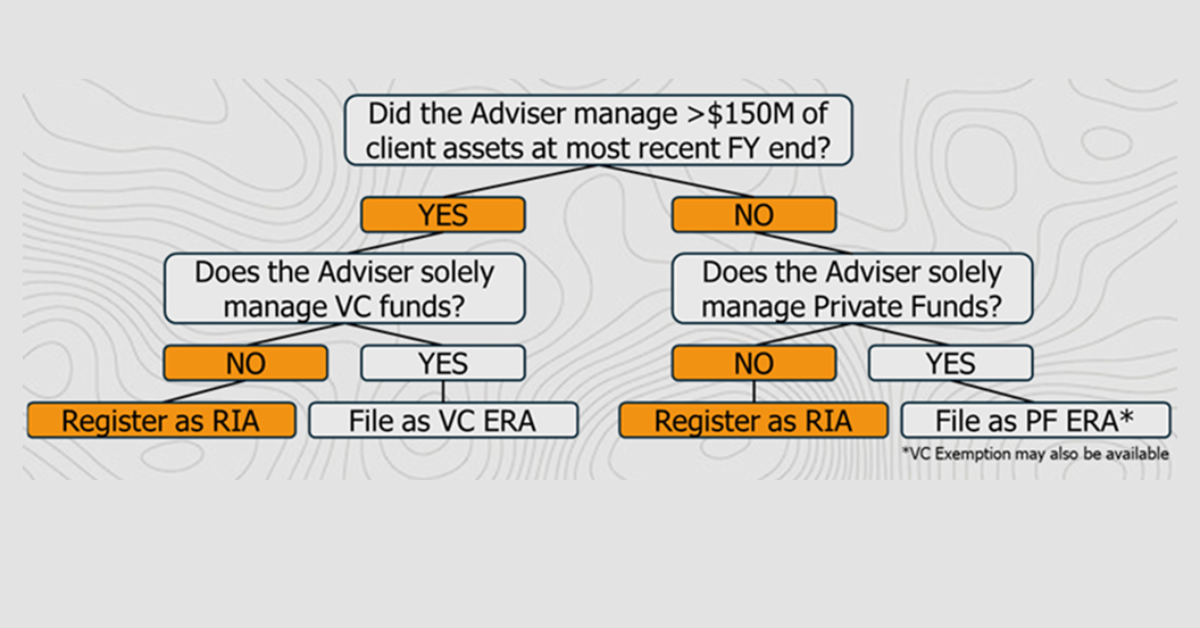Background
On May 3, 2023, the Securities and Exchange Commission (SEC) adopted amendments to Form PF. The final amendments require current reporting by large hedge fund advisers regarding certain events, quarterly reporting of certain events for all private equity fund advisers, and enhanced reporting by large private equity fund advisers. The aim of such amendments is to improve the ability of the Financial Stability Oversight Council (FSOC) to monitor systemic risk and improve the ability of both FSOC and the SEC to identify and assess changes in market trends at reporting funds. The final form amendments apply to:
- Private equity fund advisers (at least $150 million in private equity fund assets);
- Large private equity fund advisers (at least $2 billion in private equity assets); and
- Large hedge fund advisers (at least $1.5 billion in hedge fund assets).
Effective and Compliance Dates
For new sections 5 and 6, the effective and compliance date is December 11, 2023. For the amended, existing sections, the effective/compliance date is June 11, 2024, one year from the date of publication of the rules.
Private Equity Event Report
The private equity event reporting is set forth in Section 6 of the filing and applies to all PE advisers. Within 60 calendar days after the end of the applicable quarter, private equity advisers must report if the adviser closed an adviser-led secondary transaction, defined as a transaction initiated by the adviser or its related persons that offers fund investors the choice to, (1) sell some or all of their interests in the fund or, (2) convert or exchange some or all of their interests in the fund for interests in another vehicle managed by the adviser or its related persons. Private equity advisers will also be required to report if limited partners have (1) removed the adviser or its affiliate as the general partner, (2) elected to terminate the reporting fund’s investment period, or (3) elected to terminate the reporting fund itself.
Revised Reporting Requirements for Large Private Equity Fund Advisers
The revised reporting requirements for Large Private Equity Fund Advisors adds new questions to Section 4 of Form PF:
| General Partner or Limited Partner Clawbacks[1] | To be reported annually as part of regular annual filing on the implementation of:
(1) any general partner clawback, or (2) a limited partner clawback (or clawbacks) in excess of an aggregate amount equal to 10 percent of a fund’s aggregate capital commitments. Reporting includes the effective date of the clawback and the reason for the clawback. Adding an optional explanatory note question for section 4
|
| Private Equity Fund Investment Strategies |
|
| Fund-Level Borrowings | If a fund engages in fund-level borrowing, this question requires the adviser to provide:
(1) information on each borrowing or other cash financing available to the fund; (2) the total dollar amount available; and (3) the average amount borrowed over the reporting period. |
| Default | Amending existing Question 74 to require advisers to provide more granular information about the nature of reported events of default. |
| Bridge Financing to Controlled Portfolio Companies | Amending existing Question 75 to add additional counterparty identifying information (i.e., LEI (if any) and, if the counterparty is affiliated with a major financial institution, the name of the financial institution). |
| Geographic Breakdown of Investments | Amending existing Question 78 to identify a private equity fund’s greatest country exposures based on a percentage of net asset value. Requires advisers to report all countries to which a reporting fund has exposure of 10 percent or more of its net asset value. |
Large Hedge Fund Current Reports
Section 5 of Form PF requires reporting on certain current reporting events within 72 hours:
| Extraordinary Investment Losses | On a given day, the 10-business-day holding period return is less than or equal to 20% of the reporting fund’s aggregate calculated value. |
| Margin, Collateral or Equivalent Increase | Total dollar value of margin, collateral, or equivalent at the end of a rolling 10-business-day period, less the dollar value of margin, collateral, or equivalent posted at the beginning of the rolling 10-business-day period, is greater than or equal to 20% of the reporting fund’s average daily aggregate calculated value during the period. |
| Notice of Margin Default or Determination of Inability to Meet a Collateral or Margin Call | An adviser either:
(1) receives notification that the reporting fund is in default on a margin or collateral call where the reporting fund will not be able to cover, or (2) determines that a fund will be unable to meet a margin or collateral call. |
| Counterparty Default | A counterparty to the reporting fund does not meet a margin or collateral call and the amount involved is >5% of the reporting fund’s aggregate value. |
| Prime Broker Relationship Terminated or Materially Restricted | A prime broker terminates or materially restricts its relationship with the reporting fund in markets where the prime broker continues to be active, or a prime brokerage relationship is terminated by either party and a termination event occurred within the last 12 months under the relevant prime brokerage agreement. |
| Operations Event | The reporting fund or adviser experiences a significant disruption or degradation of the reporting fund’s critical operations, such as the investment, trading, valuation, reporting, or risk management functions or the ability of the adviser to operate within the bounds of the Federal Securities Laws. |
| Withdrawals and Redemptions | The reporting fund receives redemption requests of 50% or more of the fund’s NAV. |
| Inability to Satisfy or Suspension of Redemptions | The reporting fund is unable to pay redemption requests or has suspended redemptions for more than five consecutive business days. |
About HighCamp Compliance
HighCamp is a boutique compliance consulting and outsourcing firm helmed by former SEC examiners, CCOs and proven consulting professionals. HighCamp specializes in regulatory compliance and operational support for SEC-registered private equity, real estate, venture capital, hedge fund, and institutional alternative managers. HighCamp is 100-percent employee owned, with a gender-balanced leadership team. The company has locations in New York City (Metro), Los Angeles, Denver, Dallas, Milwaukee, Delaware and Bozeman.
[1] “General Partner Clawback” is defined as any obligation of the general partner, its related persons, or their respective owners or interest holders to restore or otherwise return performance-based compensation to the fund pursuant to the fund’s governing agreements. “Limited Partner Clawback” is defined as an obligation of a fund’s investors to return all or any portion of a distribution made by the fund to satisfy a liability, obligation, or expense of the fund pursuant to the fund’s governing agreements.




